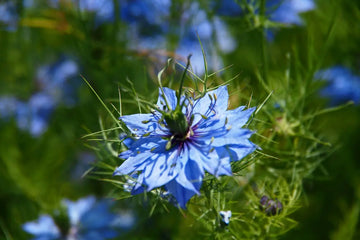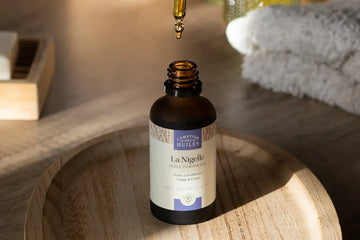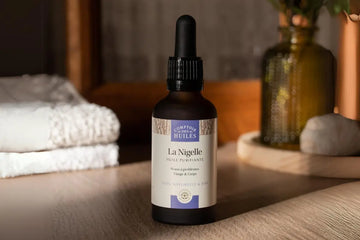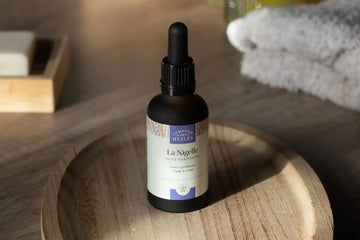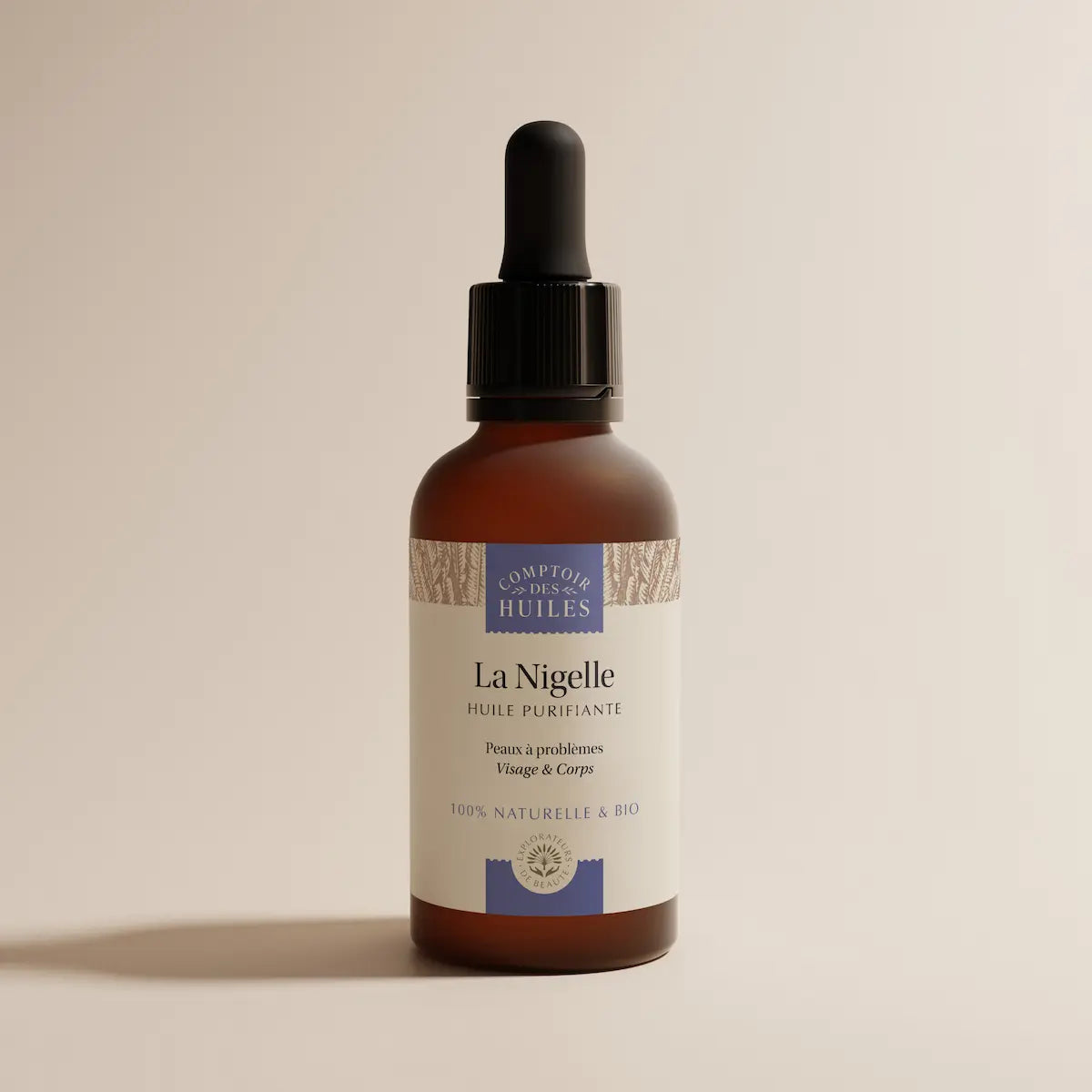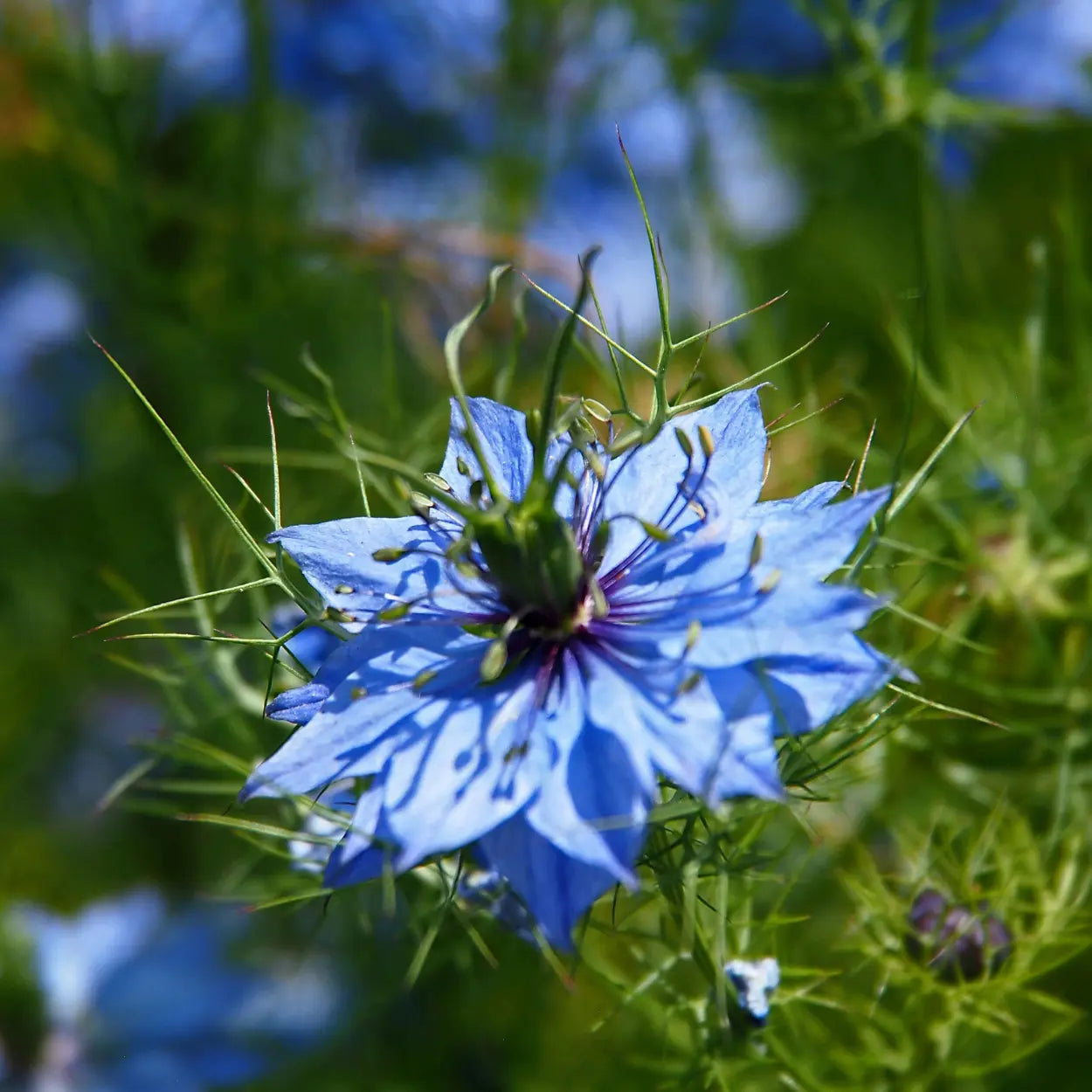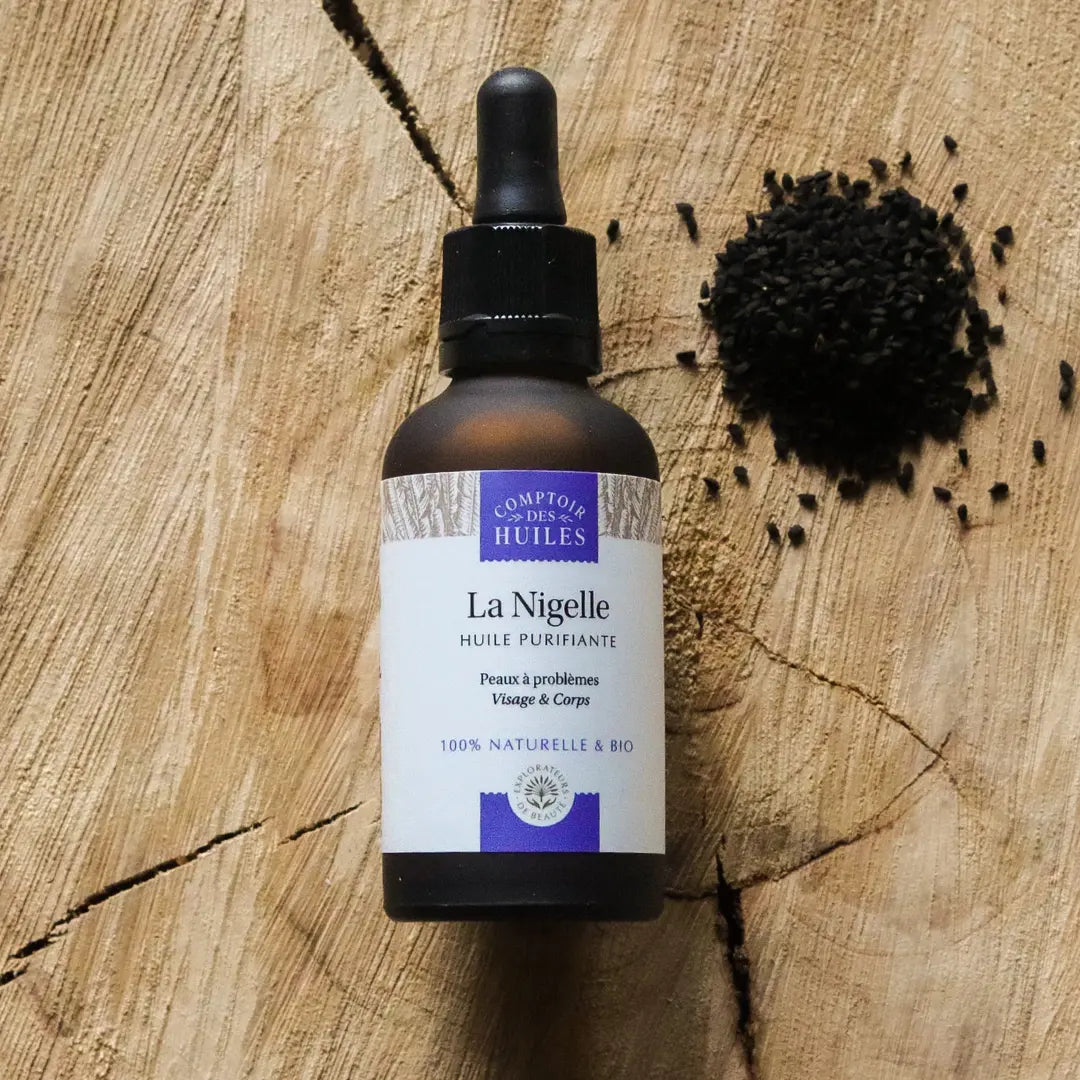The benefits of Nigella oil
Nigella vegetable oil, also known as black cumin oil, is renowned for its countless health and beauty benefits. Used for millennia in traditional medicines in the Middle East and Asia, this precious oil continues to appeal to fans of natural cosmetics for its therapeutic and aesthetic properties. In this article, we'll explore the origins of Nigella, its benefits for skin and hair, and the best ways to use it to maximize its effects.
What is the origin of Nigella oil?
Nigella, or Nigella sativa, is a plant native to the Mediterranean regions and West Asia. It has been cultivated since ancient times for its black seeds, which are used both as a spice and as a medicinal remedy. Black cumin seeds are mentioned in ancient texts, including the Quran, where they are described as a cure for all illnesses except death.
What is the composition of Nigella oil?
Nigella oil is extracted by cold pressing from the seeds of Nigella sativa. It is rich in essential fatty acids, notably omega-6 (linoleic acid) and omega-9 (oleic acid), as well as vitamin E.
- Omega-6: essential for maintaining the skin's lipid barrier. They help lock in moisture, which is crucial for dry and dehydrated skin. Additionally, they play a role in reducing redness and irritation.
- Omega-9: Oleic acid is known for its hydrating and revitalizing properties. It absorbs easily into the skin, providing deep hydration and helping to restore elasticity. It is also beneficial for repairing dry and damaged hair.
- Vitamin E: natural antioxidant, it protects the skin from environmental damage. It helps hydrate and nourish the skin, improving its texture and appearance. It is also known for its healing properties, promoting wound healing and scar reduction.
This cocktail of nutrients gives black seed oil its powerful anti-inflammatory, antioxidant and antibacterial properties.
What are the benefits of Nigella oil for the skin?
Nigella oil , thanks to its richness in nutrients and active compounds, offers many benefits for the skin, helping to treat and prevent various skin problems.
- Anti-Inflammatory and antioxidant action: black seed oil is particularly prized for its anti-inflammatory properties. The active compounds in this oil help reduce redness, swelling and irritation of the skin. It is ideal for people suffering from chronic inflammatory conditions such as eczema, psoriasis and rosacea.
- Hydration and repair: thanks to its richness in essential fatty acids, black seed oil helps restore the skin's lipid barrier, thus preventing moisture loss and improving hydration. Vitamin E also plays a crucial role in repairing damaged skin tissue, promoting smoother, more radiant skin.
- Anti-acne effect: black seed oil has antibacterial and anti-inflammatory properties which make it an excellent natural treatment against acne. It helps regulate sebum production, prevent clogged pores and reduce the appearance of pimples and acne scars.
What are the benefits of Nigella oil for hair?
In addition to its benefits for the skin, black seed oil is also an exceptional hair treatment, bringing strength, shine and health to the hair.
- Stimulation of Hair Growth: Black seed oil is known to stimulate hair growth due to its ability to improve blood circulation in the scalp and strengthen hair follicles. Fatty acids and vitamins deeply nourish hair, making it stronger and thicker.
- Dandruff and Irritated Scalp Treatment: The antifungal and antibacterial properties of black seed oil help fight dandruff and soothe irritated scalp. Regular application of this oil can reduce itching and inflammation, promoting a healthier scalp.
- Hydration and shine: Black seed oil is also effective in hydrating and softening dry and damaged hair. It penetrates deep into the hair fiber, providing hydration and essential nutrients. Result: hair that is smoother, shinier and easier to comb.
- Hair loss prevention: The nourishing and strengthening properties of black seed oil help reduce hair loss. By strengthening the roots and improving the overall health of the scalp, this valuable oil can help prevent excessive hair loss.
How to use Nigella oil?
Nigella oil should not be applied pure to the skin, only mixed with other oils or cosmetic treatments.
Although Nigella oil is generally well tolerated, it is recommended to perform a skin test before extensive use to avoid allergic reactions. Additionally, black seed oil should not be applied pure to very sensitive skin or irritated areas without prior consultation with a dermatologist or health specialist.
- For the skin: add a few drops of black seed oil to your usual cream to reinforce their anti-inflammatory and moisturizing effects.
- For hair: mix black seed oil with coconut oil or in your usual treatment and apply to the entire length of the hair. Let it sit for at least an hour before rinsing and washing.
Nigella vegetable oil is a true beauty elixir with multiple benefits for skin and hair. Thanks to its anti-inflammatory, antioxidant and nourishing properties, it offers a natural and effective solution to treat various skin and hair conditions. By integrating this precious oil into your skincare routine, you can benefit from its soothing and revitalizing effects for healthier skin and hair. Remember to consult a healthcare professional for personalized advice and tailor the use of black seed oil to your specific needs. Let yourself be seduced by the benefits of this natural wonder and treat your body to the care it deserves.


